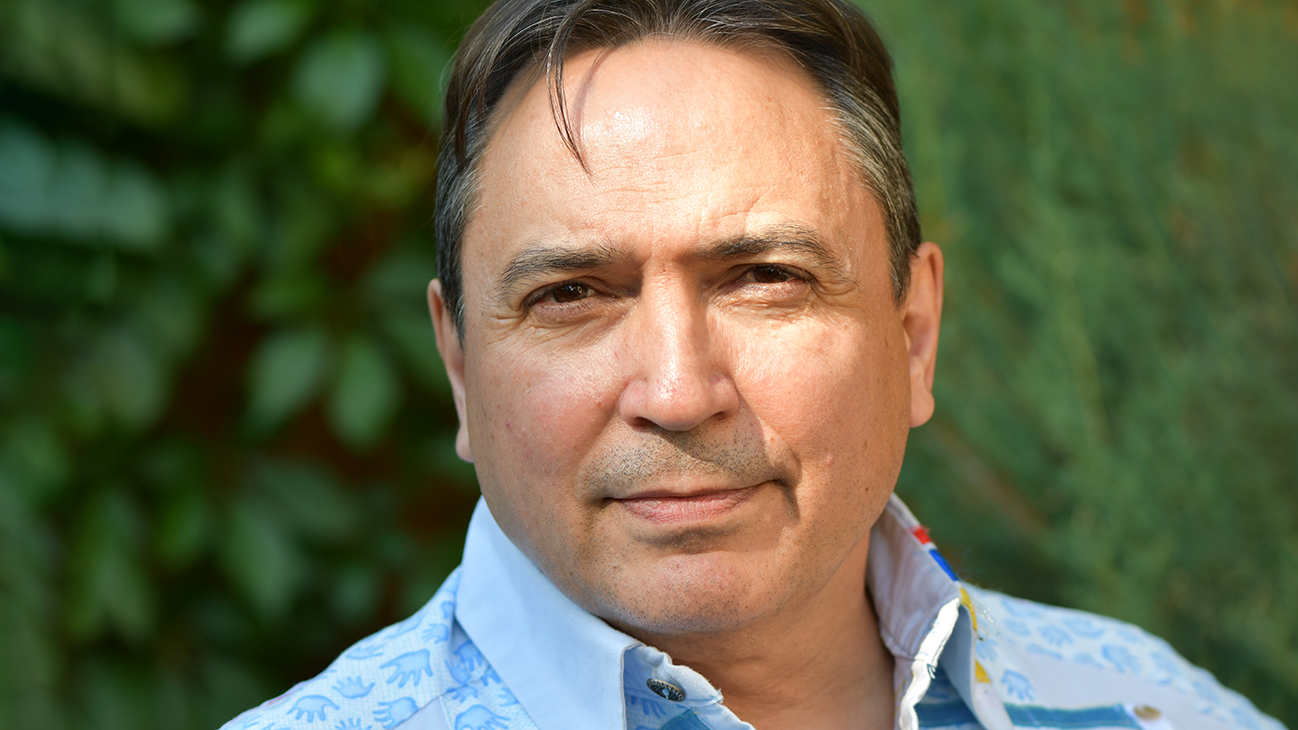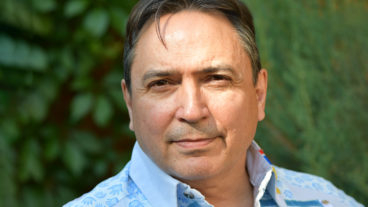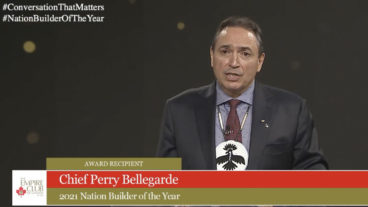“For Indigenous Peoples,” Chief Perry Bellegarde says, “the treaties are still very much alive.” In a recent piece for Canadian Geographic, Perry explores the Treaty relationship that forms the foundation of Canada and why he believes that the vision of peace and friendship at the heart of these treaties are key to building a better and brighter future for Canada.
Perry is the former National Chief of the Assembly of First Nations, a position he held from 2014 to 2021. During this time, he campaigned tirelessly to close the gap in the quality of life between First Nations and other families in Canada. Some of his accomplishment include the passage of Canada’s first national legislation recognizing and protecting Indigenous languages and securing a national legal commitment to the United Nations Declaration on the Rights of Indigenous Peoples.
Perry is a member of Little Black Bear First Nation, which is covered by Treaty 4. He calls himself a Treaty person, something that we all are, he writes. Little Black Bear entered into treaty with the British Crown almost 150 years ago. Perry writes:
When Treaty 4 was concluded, Canada gifted our leaders with medallions. These medallions were visual representations of that covenant. On one face was a portrait of the Queen.
The other face of the Treaty medallion shows two men clasping hands. One is First Nations and the other is European. At their feet you see a buried hatchet. There was no conquest. Our treaty is a commitment to peace and friendship between equals. Behind the two figures, our tipis stretch to the horizon. There are no fences. The Crown was confirming that we would continue to live on the land according to our traditions and without interference.
While I’m talking specifically about Treaty 4, a similar spirit and intent informed treaty-making right across this land, from the earliest peace and friendship treaties with the Mi’kmaw and the Wolastoqey on the East Coast through to the often-overlooked Douglas Treaties on Vancouver Island. The Crown entered into more than 70 treaties with First Nations before 1923. In every case, our people saw the treaty process as an affirmation that we would live alongside our new neighbours on the basis of mutual respect and reciprocity.
However, we also know that the original spirit and intent of the treaties was quickly betrayed. Even as it negotiated Treaty 4, Canada was implementing repressive laws that confined First Nations to tiny reserves, overthrew our traditional structures of government and tore First Nations, Inuit and Métis children from their families and cultures. There was no respect and no reciprocity.
Indigenous Peoples in Canada today live with the consequences of that betrayal.
A 2019 report by the UN Human Development Index ranked Canada as the world’s 12th wealthiest country, however this same report ranked First Nations reserves 66 places behind the rest of Canada.
From systemic racism that prevents Indigenous People accessing basic services that many Canadians take for granted, to the horrific impact of the Residential school system and the resulting generational trauma — this is not how it was meant to be, Perry says.
The original intent and spirit of the treaties was based on mutual respect and reciprocity, and Perry is confident that this promise will become a reality for Canada. The commitment embodied in the treaty relationship runs deep, he says. As we reflect on National Day for Truth and Reconciliation, Perry implores us to become the generation that honours the treaties as they were meant to be honoured.
“We are living at a time of profound change in Canada,” Perry writes. “I have seen this for myself in the negotiations we have with government and industry and in the conversations we have with our neighbours… Let this be the generation where the treaty promise of mutual respect and reciprocity is turned into reality.”
Learn more about Canada’s Treaty relationships and their impact on reconciliation.
Chief Perry Bellegarde has dedicated his life to championing the rights and well-being of First Nations. In his powerful presentations, he explores the vision behind the United Nations Declaration on the Rights of Indigenous Peoples, and how people can use it as a framework to build a more resilient and sustainable world for all our children.
Contact us to learn more about Perry and how he is helping move reconciliation forward across Canada.




